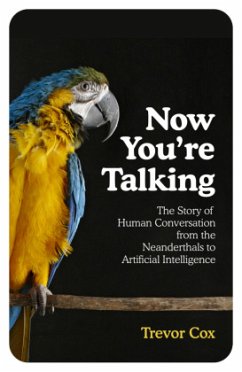§Being able to speak is what makes us human.
If you've ever felt the shock of listening to a recording of your own voice, you realise how important your voice is to your personal identity. We judge others - and whether we trust them - not just by their words but by the way they talk: their intonation, their pitch, their accent.
Now You're Talking explores the full range of our voice - how we speak and how we sing; how our vocal anatomy works; what happens when things go wrong; and how technology enables us to imitate and manipulate the human voice. Trevor Cox talks to vocal coaches who help people to develop their new voice after a gender change; to record producers whose use of technology has transformed the singing voice; and to computer scientists who replicate the human voice in their development of artificial intelligence.
Beginning with the Neanderthals, Now You're Talking takes us all the way to the digital age - with the frightening prospect that we may soon hear 'Unexpected item in the bagging area' more frequently than a friendly 'Hello, how are you?' in the street.
If you've ever felt the shock of listening to a recording of your own voice, you realise how important your voice is to your personal identity. We judge others - and whether we trust them - not just by their words but by the way they talk: their intonation, their pitch, their accent.
Now You're Talking explores the full range of our voice - how we speak and how we sing; how our vocal anatomy works; what happens when things go wrong; and how technology enables us to imitate and manipulate the human voice. Trevor Cox talks to vocal coaches who help people to develop their new voice after a gender change; to record producers whose use of technology has transformed the singing voice; and to computer scientists who replicate the human voice in their development of artificial intelligence.
Beginning with the Neanderthals, Now You're Talking takes us all the way to the digital age - with the frightening prospect that we may soon hear 'Unexpected item in the bagging area' more frequently than a friendly 'Hello, how are you?' in the street.








